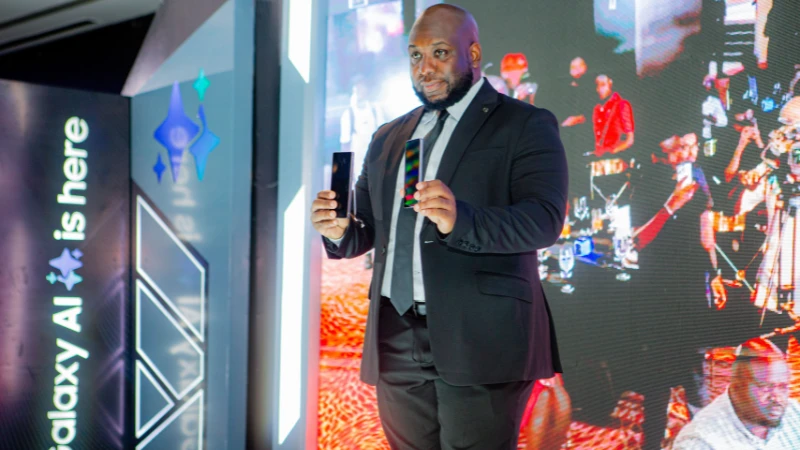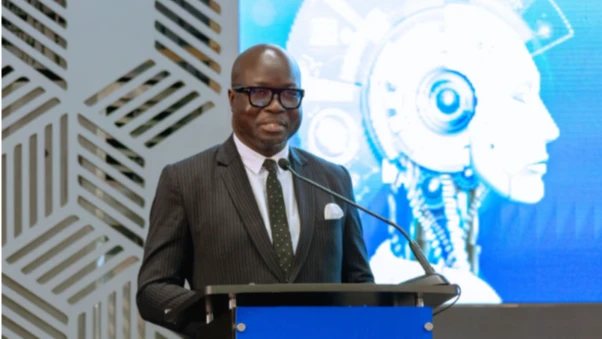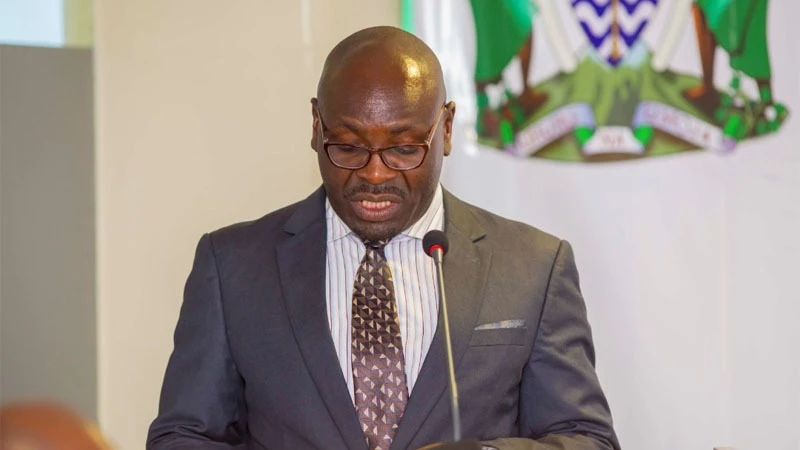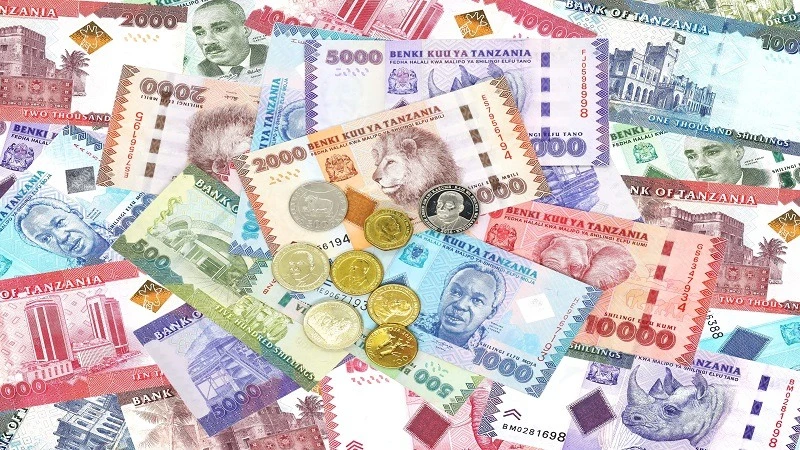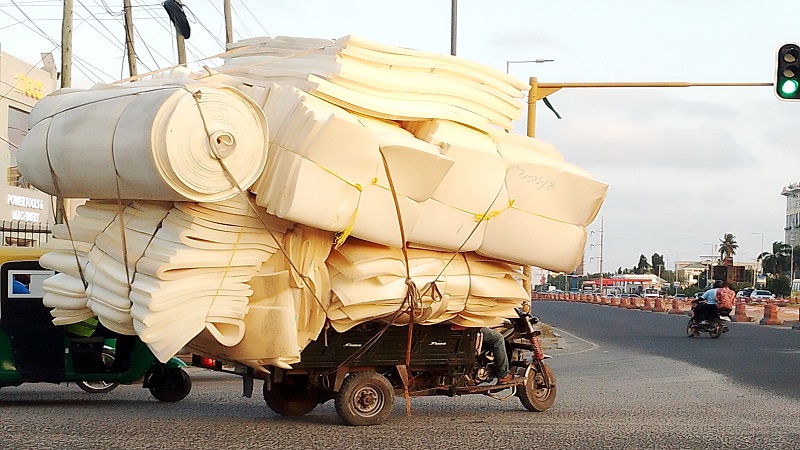TikTok's underconsumption trend meets festive excess
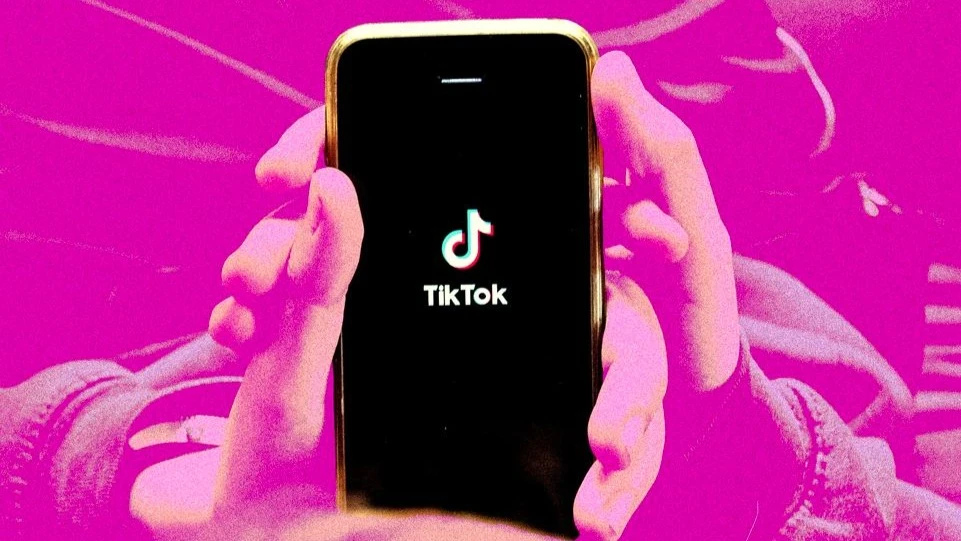
Secret Santa, stockings and presents under the tree - gift-giving is at the heart of Christmas Day.
NEW YORK
This year more people have been exploring underconsumption - the trend where shopping hauls and miracle must-buys are replaced with reusing beloved possessions and purchasing less.
It's taken off on TikTok, where mentions soared by almost 40,000% in the UK earlier this year.
Experts say it's resonated with younger people affected by the cost-of-living crisis and concerned about the climate as they look to make sustainable changes.
But can you mix that lifestyle with a time of year many people associate with overspending and indulgence?
Underconsumption means buying fewer unnecessary things and making the products you already own go further.
It might not sound that radical, especially if you're used to stretching your weekly budget.
"It's highlighting a behaviour that's quite normal," author and creator Andrea Cheong tells BBC Newsbeat.
"But in the realm of TikTok or Instagram it feels so unnatural it's gone viral."
On platforms built around ads and glamourised lifestyles the hashtag stands out, and Andrea does believe that underconsumption is different because "it's a habit, not a trend."
"The people who are sharing what they've done in their daily lives, they've been doing this forever," she says.
"They were probably taught by their parents to do it."
At Christmas, choosing to buy and consume less can feel like a challenge in the face of big-budget marketing campaigns, the pressure to share gifts and the perfectly placed extravagant home decor shared online.
"Companies are spending millions of pounds on ads that make you want to go out and buy that thing right now," says Darwin Alford, a retail worker living in Brighton.
Darwin, who shares sustainability tips online in her spare time, says she doesn't want presents this Christmas.
She admits the "hardest step" is telling your family members.
"My nan, she's one of those who loves having all of the gifts under the tree," she says.
"It's her way of showing love, it's her way of making me feel special."
Darwin says it pays to be straight-up with loved ones and it helps to suggest alternative ideas for gifts, such as experiences, rather than products.
Influencer Charlie Gill, from Manchester, has been sharing sustainability tips on social media for six years now and says her content has taken off since the underconsumption trend began.
She's turned her focus on to Christmas, suggesting ways that decorations, gift wrap and even Christmas dinners can be stripped back.
"There are so many small steps anybody can do," she says.
"Considering how much food you're purchasing, don't buy things in excess, make sure you're actually eating your leftovers."
Charlie makes her own decorations, and this year she's created a Christmas tree out of a magazine, as well as "stars out of toilet rolls, all that kind of thing".
Some people aren't fans of the homemade aesthetic and Charlie admits she got some hate online over a TikTok of her festive decorations last year, but says it doesn't put her off.
"I don't think there's anything wrong with people celebrating Christmas in a different way," she says.
"There are different ways of gifting and creating the kind of Christmas you want whilst also underconsuming and not creating excess waste."
Underconsumption might be a new hashtag, but it's not a new idea.
"It's not a new concern but it is an enduring phenomenon that's been labelled in different ways in different times," says Prof Caroline Moraes, of the University of Birmingham.
One example is the voluntary simplicity movement in the 19th Century, she says, which advocated for an anti-consumerist lifestyle.
Prof Caroline, a marketing and consumer expert specialising in sustainable consumption, says the renewed interest in 2024 can tell us about modern-day worries.
She says it points to a greater concern over the environment and the cost-of-living crisis but also a greater awareness of brand ethics and where the things we buy come from.
Earlier this year, fast fashion giant Shein said it found two cases of child labour in its supply chain, some luxury perfumes have also been linked to child labour and concerns about the fashion industry's environmental credentials are widely reported.
"I think all of us are beginning to realise the part we need to play in terms of tackling the sustainability challenges and the climate crisis we're facing," says Prof Caroline.
Author Andrea thinks the sudden rise in interest also shows a fatigue with consumer culture.
"I think people like myself are so excited about underconsumption because we share the same mission, which is 'let's just slow down'," she says.
"But really it's rooted in a lack of control over the cost of living."
Last week, figures showed prices were rising at the fastest rate since March.
While the cost of turkey and sprouts has driven down the cost of a Christmas dinner this year, what you pay for potatoes, carrots and parsnips has shot up.
"When life feels chaotic and overwhelming, you're always going to have this human retreat to something slower," says Andrea.
Trends come and go but the people Newsbeat spoke to hope that underconsumption might spark meaningful changes in our shopping habits all year around.
"We are conditioned to believe we need to be consuming more because this is the time of year to do so," says Prof Caroline.
"Trying to reduce consumption goes against the norms of consumer culture.
"So I think it's a really good thing these influencers are out there because they're questioning excessive modes of consuming, they're questioning some of these lifestyles that have appeared alongside social media and trying to bring us back to a normal way of consuming."
Charlie says she's witnessed conversations in the comments under her videos and believes "many people are really engaging with it".
"It's just about everybody trying to live a little bit more sustainably in whatever way that is, because every little thing we do is going to make an impact."
Top Headlines
© 2025 IPPMEDIA.COM. ALL RIGHTS RESERVED












